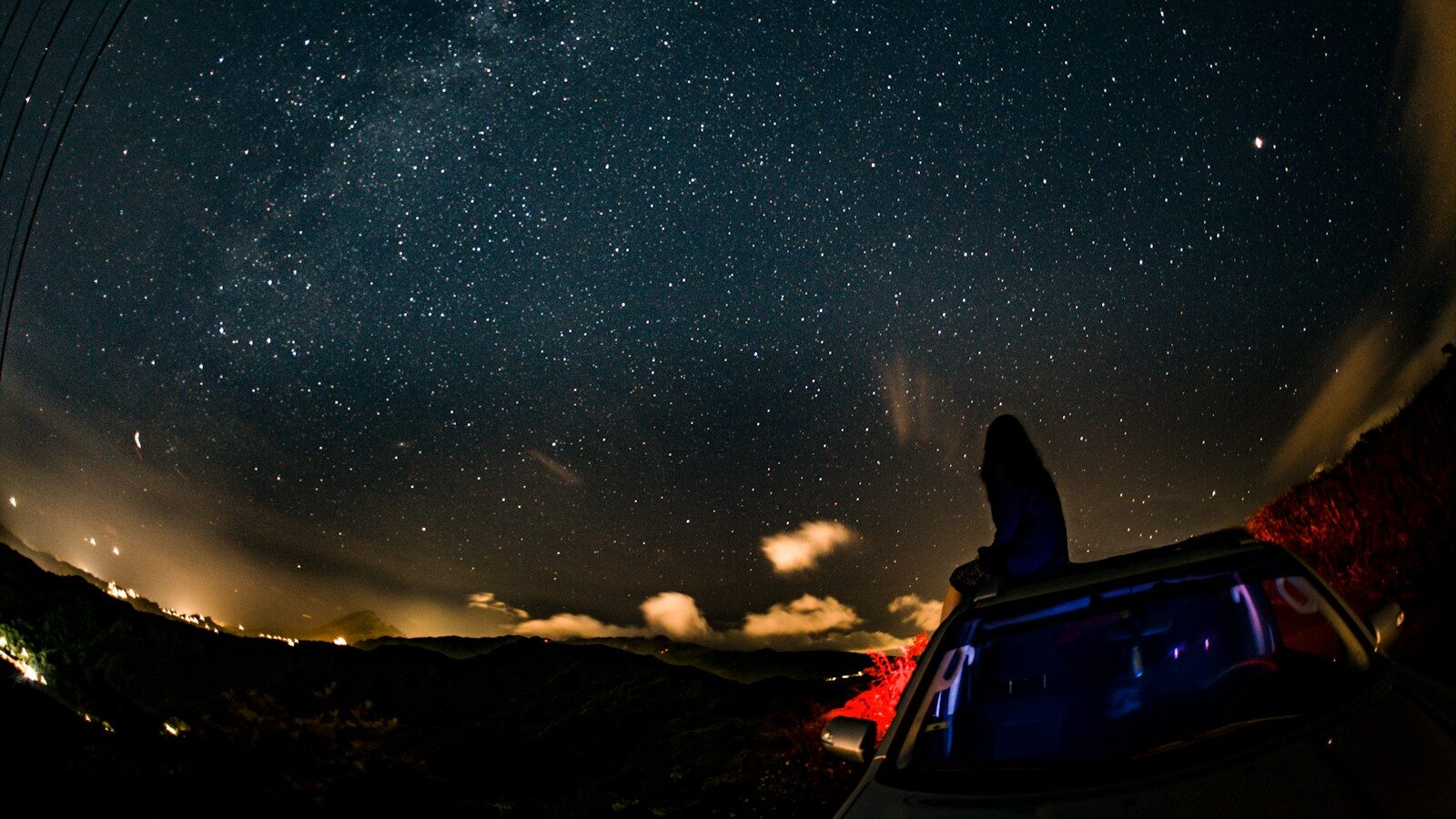Charly Cox on climate change coaching and empowering climate leadership through coaching skills
Climate Change Coaching is an emerging practice of coaching that supports sustainability leaders in using coaching skills to reimagine the future of human and planetary well-being.
Wisdom Weaver
Climate Change Coaches: Disseminating coaching skills for climate impact
Charly Cox is at the forefront of the emerging field of Climate Change Coaching, which leverages coaching skills to empower climate leaders to address the pressing climate crisis. Since founding Climate Change Coaches, the organization has trained over 200 coaches in climate-conscious methodologies, responding to the increased demand for support within the sustainability sector. Through coaching, individuals are equipped to navigate the complexities of climate change, fostering resilience and connection to the environment for a sustainable future.
Charly’s journey into Climate Change Coaching began in 2016 when, as a leadership coach, she recognized the need to expand her practice to address climate change. Despite facing initial discomfort among coaches who perceived talking about climate change as too political, Charley forged ahead with her vision of supporting clients within the sustainability industry. Assembling a group of like-minded coaches, Charly crafted a program to help climate leaders achieve their sustainability goals and use coaching skills to build connections for greater impact.
The work at Climate Change Coaches is twofold: working with clients to overcome challenging emotions and teaching coaching skills to help clients build new partnerships and increase their impact. The organization partners with various entities, including non-profits, community organizations, and for-profit businesses, to promote environmental sustainability and strengthen Environmental, Social, and Governance (ESG) strategies. Charly notes both a growing interest in climate action among businesses and a high rate of burnout and overwhelm within the sustainability sector.
Tracing the connection between climate change and well-being
Beyond supporting climate leaders, Climate Change Coaching also addresses the profound connection between climate change and well-being. Her clients from outside of the sustainability industry are attracted to climate coaching because they see severe weather events disrupting jobs, displacing communities, and harming health. They want to support planetary health but are unsure where to start. Charly explains, “Climate change is ultimately a well-being issue.” While climate emergencies take a toll on mental and physical well-being, improving environmental health and connection to the environment can also benefit human well-being. Coaches play an instrumental role in helping people adapt to climate emergencies and overcome climate anxiety. She also sees coaches revealing the connection between planetary health and personal well-being and assisting clients to cultivate positive relationships with the environment.
“I was motivated to do something about the climate crisis, not because I care about polar bears. Like many people, I also feel disconnected from nature. I have made it my job to connect to nature. It is one of the ways I stay safe, healthy, and well in this work. As a coach, I care fundamentally about people, their flourishing, empowerment, and ability to overcome the odds. And climate change is an obvious place to work because it is just as much about people. We are saving ourselves just as much as we are trying to save the planet. The flora, fauna, and planet will still be here long after we are gone.”

Read the interview below to learn more about coaching and the future of human and planetary well-being:
Charly Cox illustrates the power of climate change coaching to support planetary health
Where did your career as a Climate Change Coach begin?
“I have been a coach for ten years, and most of that time, I was a leadership coach working with business owners, leaders, and social entrepreneurs with a strong sense of purpose. Many entrepreneurs have a strong desire to fix something that does not work, so even when people are working for profit, they are still people who want to solve real problems.
When I had my first daughter in 2016, I had this wake-up call to a whole series of systems problems, and as I started tracking these problems, I came back to climate as an umbrella under which all these other issues sit, and I decided to do something about climate change. I was told in nice and slightly hostile ways that coaching for climate change was not allowed in coaching, that it was not commercial, that I would make no money, that I was an activist, and that coaching has nothing to do with climate.
I was lucky to meet people who were coaching clients in sustainability. When I changed my name to ‘climate change coach,’ I very quickly was inundated by coaches who wanted to know what this meant. Within two months, I pulled together a team of coaches, and we started creating a methodology and identifying the people who could benefit from climate change coaching.”

What kind of challenges do you address through Climate Change Coaches?
“While coaching people is important, and we do that, we are actively training people to use coaching skills to amplify our impact much more quickly. So, we asked, ‘Who needs coaching skills to make the green transition happen?’ It is people on the frontline of climate action. That means sustainability leaders, environmentalists, conservationists, and scientists. These are people who need to have a different means of influencing people beyond using data.
In one of our training programs, we teach people how to connect something somebody already cares about to the climate crisis because it is the umbrella issue. All of life lives underneath the skies. So, if you care about health and well-being, for example, then there is a direct connection. From the North American wildfires, for example, to flooding in the United Kingdom, there is a direct impact on people’s health. Even if you are not directly affected, the stress of the event impacts the health and livelihoods of a whole town as people are without internet and power, which directly influences people’s well-being.
When we teach people coaching skills, we teach people how to engage on a human level, listen well, and ask questions that are not about fixing somebody. But to show you care about them, you respect them. We go through how to overcome differences in a way that says, ‘I really care about your views.’”

How does Climate Change Coaching differ from other forms of coaching?
“In many ways, it is just niching. Coaches are not very good at niching, and it is edgy because we do not want to exclude people, partly from scarcity or a value of inclusion, but that makes it very hard for people to find you. And so, ‘badging yourself up’ helps in two ways: I attract clients who want to talk about climate, but I still coach the odd person who does not have a connection to climate. I never talk about it with them because it is not their agenda, but gradually, they start talking about it. What is noticeable is that the clients I had before the change have started doing things about sustainability simply by being in the presence of someone who is doing it, even though we never talked about that subject in coaching.
I have also had new mothers pay a lot of money for coaching with me. Now, that is a category that people say, ‘No, they would never pay for conversations about climate change.’ If they care enough about it, yes, they would. There is a big misconception that no one is interested in this unless it is their job. Personally, that has not proved to be true at all.”

How can coaches support clients who want to address climate change?
“With our clients, we see fear running rife, and we have coaching skills for addressing fear, including fear of change. We are moving people from helplessness and helping them into a place of purpose and motivation. And so, every time you have a conversation, whether on the street, in the shop, or in a coaching conversation, you should be listening to where the fear is and moving people into a sense of empowerment.
The big win from the pandemic was the imaginative leap that it created in what we do in a global crisis. During the pandemic, we pulled together, and we started valuing something other than what we could buy and earn. For example, we started valuing our medical colleagues far more than investment managers. For environmentalists, it points to ‘We did this already; we can do it again.’”

What skills will people need to address climate change and the future of well-being?
“There will be technical skills that people will need. Many activists I have worked with have talked about needing to learn how to grow your own food and how to fix things again because we have forgotten that or made things unfixable. We might have to get back to things that can be fixed.
But really, having the ability to pull together as communities and protect each other’s mental well-being. Having the skills to overcome differences and, therefore, have difficult conversations skillfully rather than aggressively and disrespectfully. They think it will all be about how we support each other.”

What role will coaches play in supporting the future of well-being for people and the planet?
“When you think of these spaces where big difficult problems exist, like climate, they are polarized, aggressive, judgmental, and splintered. Coaches can come into those spaces with compassion and non-judgment. There is something about the way we show up in these spaces and then help people understand how systems change by helping them feel empowered to act.
Coaches will be overworked in the sense that we will be the ones helping people to remember their human skills, compassion, kindness, and nonjudgment. Helping people process their big feelings so they can still be in the world and still imagine possibility and opportunity when it looks like there are none.”





